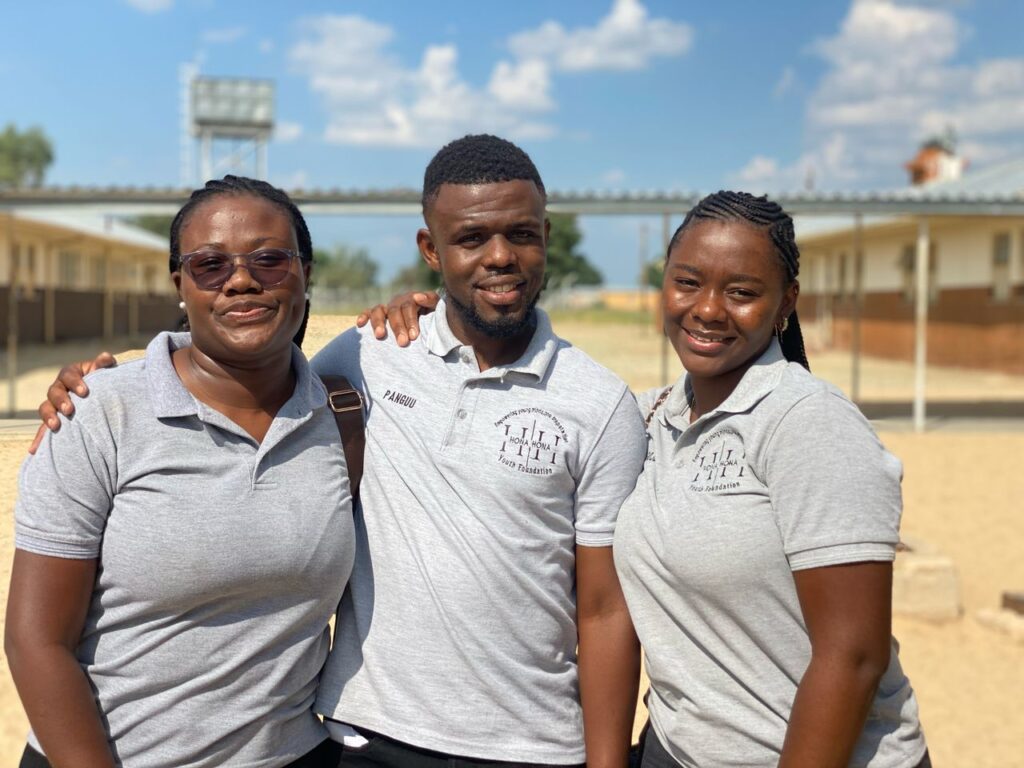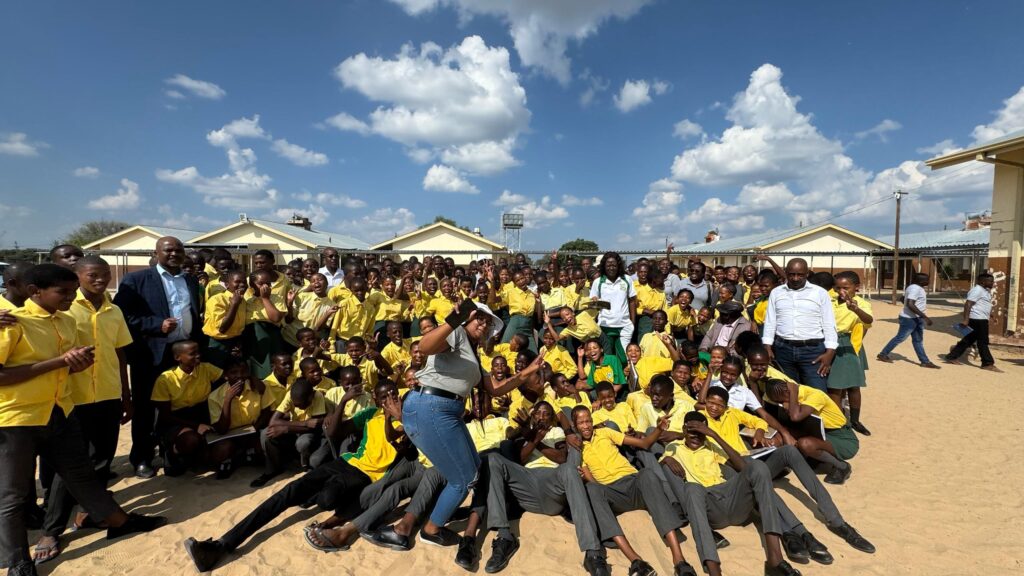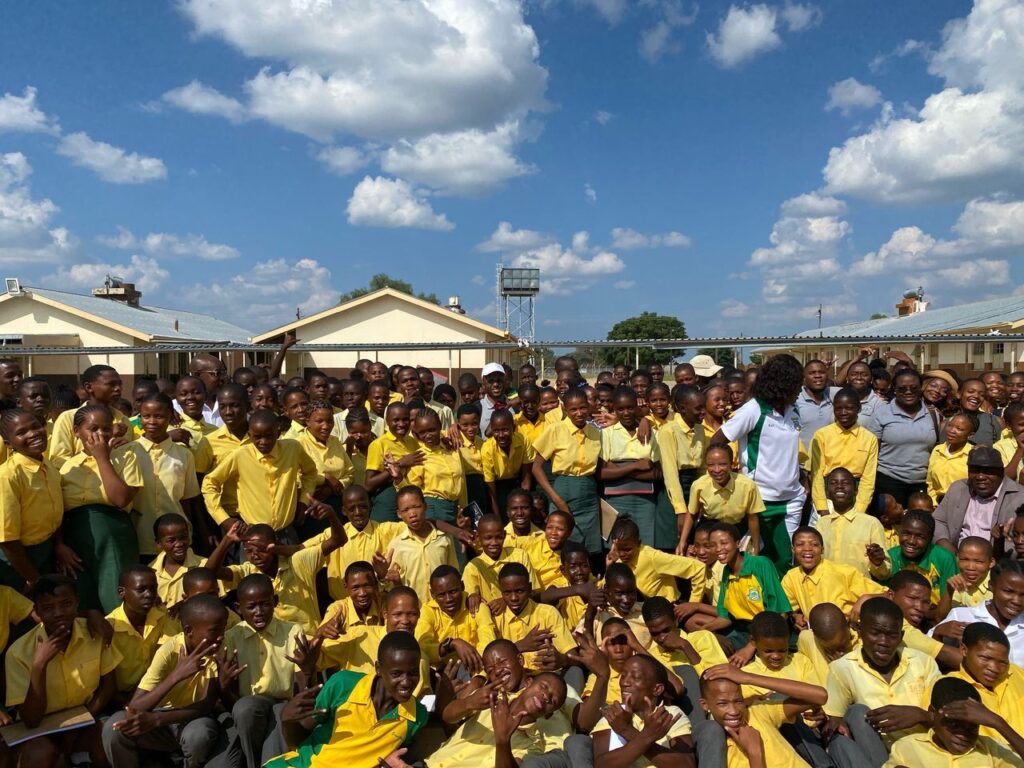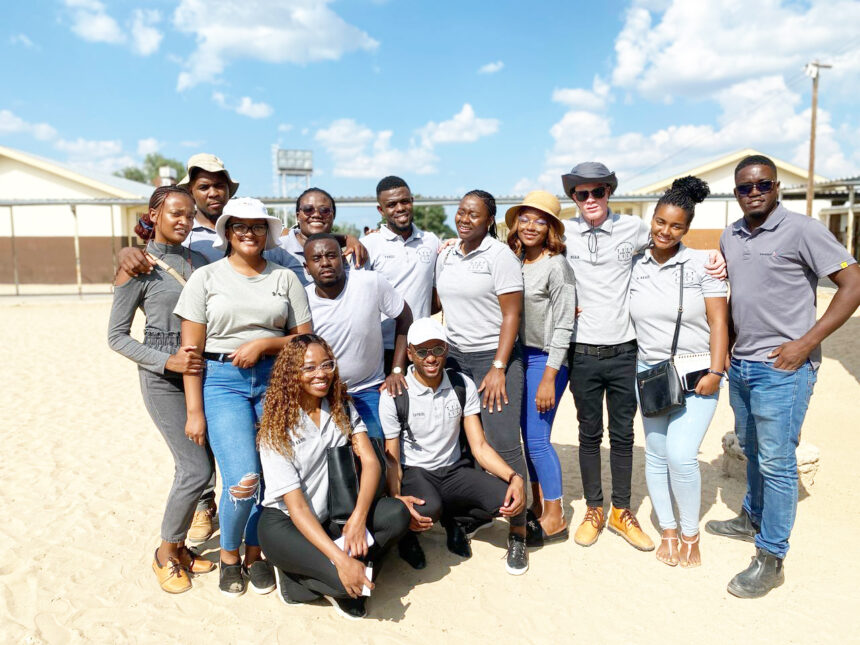TALLISMANUS – Veterinarian Punandjambi Kazapua has emphasised the importance of goal-setting and time management for both academic and personal growth among learners.
Kazapua, who practices in the Omaheke region, stated that goal setting teaches learners to prioritise tasks and manage their time effectively, which helps them cultivate self-discipline and responsibility.

The veterinarian, a member of the Otjombinde Youth Group in collaboration with the Hona Hona Youth Foundation, recently engaged with learners at C. Heuva Junior Secondary School in Tallismanus.
“Proper time management ensures students complete assignments and quizzes on time, and prepare well for exams. It allows for better concentration and understanding of subjects. It reduces last-minute cramming, leading to better retention of information,” said Kazapua while addressing learners.
The Otjombinde Youth Group was established last year to mentor, inspire and educate learners by sharing experiences, knowledge and success stories, fostering a culture of giving back.
“We would like to create impactful programmes that support learners in their academic, personal and career growth through mentorship, motivation and community engagement,” he indicated.
He added that their vision is to bridge the gap between successful youth and the younger generation by providing guidance, encouragement and opportunities for a brighter future. Ndjipua Siririka, who also engaged Youth Corner, emphasised the critical impacts of alcohol and drug abuse and teenage pregnancies, particularly how these issues negatively affect their education and prospects.

“It is important for learners to have mentors who can guide them through their academic and career journeys, as well as provide various effective study methods to enhance their learning experience,” he said.
Lawyer Nguvitjita Hambeka also shared her insights with the learners on the challenges of the law profession, emphasising that it is more than just advocacy—it requires high ethical standards, dedication and hard work.
“My goal was to inspire them to make informed decisions, and understand that success in any field requires discipline and perseverance,” she shared.
With the diverse topics at hand, Kangava Kaurivi addressed the integration of Artificial Intelligence (AI) in schools, particularly in rural areas, to enhance learning experiences.
“We can improve our education system by introducing a novel AI teaching method. Let’s not resist technology, but rather use it to elevate the region’s educational framework,” said the electrical engineer.
He noted that one intervention could be providing science students with access to projectors in classrooms to deepen their understanding of specific topics. He also mentioned that platforms like YouTube can be utilised to clarify complex subjects. This approach, he stated, would enable learners to apply their photographic skills to problem-solving.
The group collaborated with the Hona Hona Youth Foundation to raise awareness about the significance of youth cooperation. The Hona Hona Youth Foundation is dedicated to empowering school-aged learners with the necessary resources to succeed and smoothly transition to higher education. Founded by a collective of Windhoek graduates, the foundation plays a pivotal role in supporting young individuals.
“My message focused on alcohol abuse and safe sexual practices. I believed it was essential for the youth, as they are impressionable and often susceptible to peer pressure. I emphasised the importance of abstaining from both issues since teenage pregnancy and alcohol abuse significantly hinder academic focus, especially in rural communities,” stated Navita Nguvauva from the Hona Hona Foundation.
Another member, Muningandu Tjingaete, stressed the importance of self-reflection and striving for improvement, despite one’s background and challenging circumstances.
“Understanding oneself, your background and your origins is critical. I serve as proof that your educational institution does not dictate your success nor define your intelligence,” said the cybersecurity expert. She further asserted that regardless of one’s origins, there’s always potential for achievement.

“Don’t let your circumstances define you; you possess the power to rewrite your story and forge a brighter future for yourself,” she emphasised.
-psiririka@nepc.com.na



